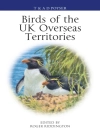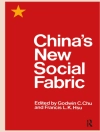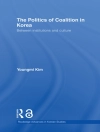`The book makes a successful attempt to map the potentially transformative effects of new media on various aspects of political insitiutions and culture, both at a theorectical and empirical level. Barrie Axford′s discussion of the changing nature of political practice and technologies of political communication in relation to wider discourse of ‘crisis’ is insightful and well argued….This is a genuinely thought provoking and generally very well written book. The book also works well by providing a potential basis for theoretically informed future research in the field of political communication′ – Political Theory
Exploring the theme of the putative transformation of political modernity under the impact of `new′ media, this book adopts a questioning approach to the ways in which cultural and technological factors are affecting the temper of political life, and reflects the variety of normative thinking about and empirical research on the changing character of politics in mediatized cultures.
New Media and Politics examines: the extent to which commercial populism now dominates electoral and other political discourses; the ways in which the functions of leadership, government and political parties are modified by different forms of both old and new media; the democratic or undemocratic import of such changes; and the ways in which the dominant territorial paradigm of politics is challenged by the space and time devouring capacities of electronic media.
Table of Content
The Transformation of Politics or Anti-Politics? – Barrie Axford
The Transformation of Political Communication? – Sandra Moog and Jeff Sluyter-Beltrao
The Transformation of Democracy? – Peter Dahlgren
The Transformation of the Public Sphere? – Sinikka Sassi
The Transformation of Citizenship? – Stephen Coleman
The Transformation of the Political Audience – Richard Huggins
The Transformation of Governance? – Ken Newton
The Transformation of Political Leadership? – Jennifer Stromer-Galley and Kathleen Hall Jamieson
The Transformation of Political Parties? – Dominic Wring and Ivan Horrocks
The Transformation of Political Modernity? – John Street
About the author
Barrie Axford is Professor Emeritus in politics in the School of Social Sciences at Oxford Brookes University, where he was founding Director of the Centre for Global Politics Economy and Society (GPES). He is interested in global theory, processes of globalization, and the framing of politics by digital media. His books include The Global System (1996); Theories of Globalization (2013); The World-Making Power of New Media: Mere Connection? (2018) and 3 co-authored editions of Politics: An Introduction. He has recently co-edited Rethinking Ideology in the Age of Global Discontent, with Gulmez.B and Gulmez, D (2018) and Political Sociologies of the Cultural Encounter, with Brisbourne, A, Halperin, S and Lueders, C (2020). Currently, he is guest editor for a Special Forum of the journal Globalizations on Is an Integrated Theory of Globalization Possible, and is it Desirable? and guest co-editor (with Manfred Steger) of the forthcoming 2021 volume of the journal Protosociology, on Populism and Globalization. His work has been translated into several languages. He is starting work on a book about the indifferent globality of viruses, BIg Data and A.I.












